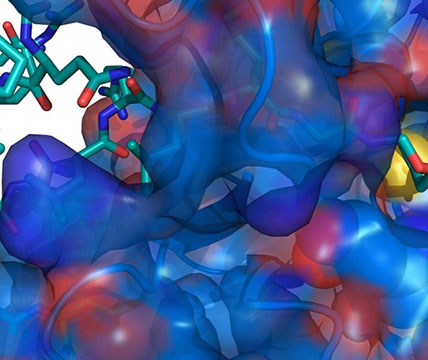This research grant will support the testing of Mission Therapeutics’ potent and selective USP30-targeted inhibitors in translationally relevant stem cell-derived Parkinson’s disease models developed by Professor Richard Wade-Martins and his research group at the University of Oxford.
USP30, a mitochondrial associated DUB, has been implicated in the control of mitophagy—a process where dysfunctional mitochondria are selectively cleared from the cell. Failure of mitochondrial quality control may lead to degeneration of the highly active substantia nigra neurons in the brain, a pathological mechanism which results in Parkinson’s disease.
The inhibition of USP30 is being studied by Mission Therapeutics to see if this promotes mitophagy and thus improves cellular resilience in this and other neurodegenerative diseases. The objective of the research collaboration with Prof Wade-Martins is to test Mission’s potent and selective USP30 inhibitors in a range of disease models—induced Pluripotent Stem Cells (iPSC)-derived from patients with sporadic and familial Parkinson’s disease.
Shalini Padmanabhan, PhD, Associate Director of Research Programs at MJFF, said “USP30 is one of the more promising DUBs associated with mitophagy, in terms of published data and feasibility of compound development. We hope that this collaboration between Mission Therapeutics and Oxford Parkinson’s Disease Centre will promote our understanding of the mechanisms and consequences of USP30 inhibition in Parkinson’s disease.”
Dr Michael Koslowski, Executive Vice President, Research and Development and Chief Medical Officer of Mission Therapeutics, added: “Receiving funding from the Michael J Fox Foundation is a great accolade, recognising the quality of the research being done by Mission Therapeutics and Prof Wade-Martins and his group. The collaborative study will provide key data that will guide the clinical development strategy of our USP30 inhibitor programme. We are working hard to find new ways in which to tackle this difficult disease, which is especially highlighted during this World Parkinson Awareness week, for patients and their families”.
Parkinson’s disease is a chronic, degenerative neurological disorder that affects one in 100 people over age 60. There is no objective test, or biomarker, for Parkinson’s disease, so the rate of misdiagnosis can be relatively high. Estimates of the number of people living with the disease therefore vary, but recent research indicates that at least six million worldwide have Parkinson’s disease.
Mission Therapeutics, an early-stage drug development company targeting the ubiquitin pathway for the treatment of cancer, neurodegenerative, and other diseases of unmet need. The Company has built a leading platform for the discovery and development of first-in-class, small-molecule drugs that selectively target deubiquitylating enzymes (DUBs)—an emerging drug class that is attracting significant commercial interest in the area of protein homoeostasis.
Mission has strong links with key academic and research centres, including Cancer Research UK Laboratories and the University of Cambridge’s Jackson Laboratories at the Gurdon Institute, and a leadership team that has broad international, commercial and scientific experience.
In February 2016, the Company completed an $86m financing that was led by Imperial Innovations and Woodford Patient Capital Trust and included participation from existing investors Sofinnova Partners, Roche Venture Fund, Pfizer Venture Investments and SR One. Mission Therapeutics was founded in 2011 and is based at the Babraham Research Campus, Cambridge, UK.
The world’s largest nonprofit funder of Parkinson’s research, the Michael J Fox Foundation is dedicated to accelerating a cure for Parkinson’s disease and improving therapies for those living with the condition. In addition to funding more than $700 million in research to date, the Foundation has fundamentally altered the trajectory of progress toward a cure.











